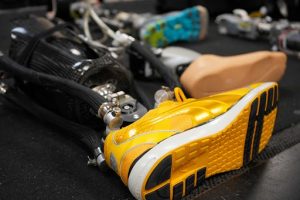 BME faculty in the Rehabilitation Engineering area are committed to improving the lives of individuals with disabilities by carrying out transformative research, developing innovative and effective rehabilitation and assistive technologies, translating our new knowledge and technologies to stakeholders (i.e., clinics, biomedical industry and end users) and educating the next generation of rehabilitation engineering leaders.
BME faculty in the Rehabilitation Engineering area are committed to improving the lives of individuals with disabilities by carrying out transformative research, developing innovative and effective rehabilitation and assistive technologies, translating our new knowledge and technologies to stakeholders (i.e., clinics, biomedical industry and end users) and educating the next generation of rehabilitation engineering leaders.
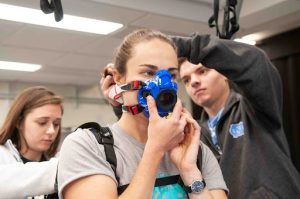 Faculty Research in Rehabilitation Engineering includes the study of musculoskeletal, neuromuscular and sensory disorders, alongside the development and translation of bio-inspired prosthetics and orthotics, rehabilitation robotics, neural-machine interfaces and technologies for fall prevention.
Faculty Research in Rehabilitation Engineering includes the study of musculoskeletal, neuromuscular and sensory disorders, alongside the development and translation of bio-inspired prosthetics and orthotics, rehabilitation robotics, neural-machine interfaces and technologies for fall prevention.
There are state-of-the-art facilities in BME that support human movement analysis, the study of tissue biomechanics, electrophysiological studies, rapid prototyping and robotics. Breakthrough innovations and advanced research in the area of Rehabilitation Engineering are achieved by tight collaborations between BME faculty, including scientists and engineers in the NC State College of Engineering and clinicians and physical therapists at the UNC School of Medicine as well as other clinical professionals in local hospitals, patients with disabilities and local industrial partners.
BME-based Rehabilitation Engineering Research Center and Labs
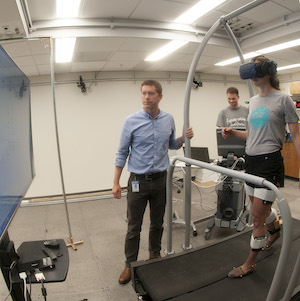
Applied Biomechanics Lab
The ABL specializes in the neuromuscular biomechanics of human movement, with an emphasis on aging and disease-related mobility impairment. The lab’s primary research seeks to discover the musculoskeletal and sensorimotor adaptations that underlie a loss of independent mobility, and to introduce creative new approaches for preserving walking ability and preventing falls.
Visit the Applied Biomechanics Lab website…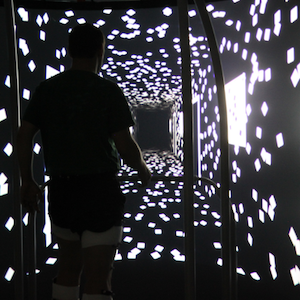
Closed-Loop Engineering for Advanced Rehabilitation (CLEAR) Research Center
We envision a center of excellence for Closed-Loop Engineering for Advanced Rehabilitation (CLEAR) that investigates human-machine interactions, develops advanced wearable, rehabilitation technologies and enables seamless integration and co-adaptation of rehabilitation machines and humans to assist and augment physical abilities, performance and experiences in individuals with disabilities.
Visit the Closed-Loop Engineering for Advanced Rehabilitation (CLEAR) Research Center website…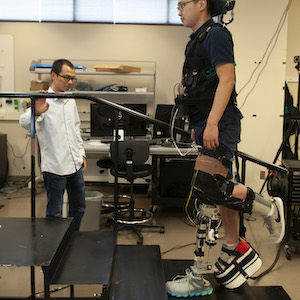
Neuromuscular Rehabilitation Engineering Lab
The Neuromuscular Rehabilitation Engineering Laboratory investigates the control mechanism of neuromuscular system in normal and neurologically disordered persons, develops advanced neural-machine interfacing technologies, and applies these techniques to neural control of prosthetics, orthotics, computers and other assistive devices.
Visit the Neuromuscular Rehabilitation Engineering Lab website…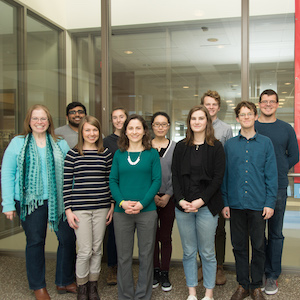
Orthopaedic Mechanobiology Lab
The Orthopaedic Mechanobiology Lab, OML, is directed by Dr. Jacque Cole. The overall goal of the OML is to determine mechanisms underlying the prevalent bone deficits in various clinical conditions (e.g., stroke, obesity, aging and nerve injury), with the long-term goal of developing novel therapies to treat or even prevent bone loss in these scenarios.
Visit the Orthopaedic Mechanobiology Lab website…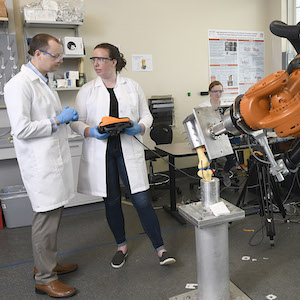
Translational Orthopaedic Lab
Our research focuses on understanding the normal structure and function of musculoskeletal soft tissues and using this information to develop new tissue engineering and regenerative medicine solutions. Areas of interest include experimental and computational evaluation of tissue structure and function during skeletal growth, biomimetic scaffold fabrication and engineering of multi-tissue constructs.
Visit the Translational Orthopaedic Lab website…

